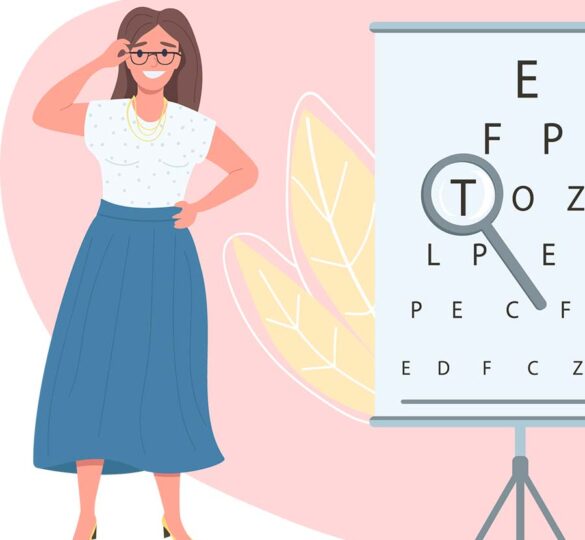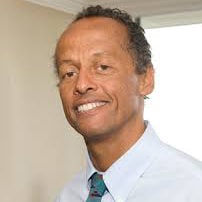Advice from a Glaucoma Specialist: A. Sydney Williams, MD
"I would say that the main takeaway point is to be an advocate for your care. From a patient view, you have to advocate for yourself."

Creating Your Own ‘A’ Team for Glaucoma Care” was a session at the 2019 Glaucoma Patient Summit with information and tips for glaucoma patients to manage their eye health.
Dr. A Sydney Williams (University of California, San Francisco) was on the panel along with Dr. Andrew Iwach (Glaucoma Center of San Francisco) and three glaucoma patients.
In this video, Dr. Williams summarizes the main takeaway messages from the session and discusses the importance of patients being informed about glaucoma and advocates for their own care.
Video Transcript
My name is Dr. A. Sydney Williams. I am a Glaucoma Specialist, and still in practice in San Mateo. I am also working at UC San Francisco in the Department of Ophthalmology as a Glaucoma Specialist.
“Finding Your A-Team to Treat Glaucoma” was a session on patient ideas when you get the diagnosis of glaucoma. Should you seek a second opinion? What information should you seek from your specialist? When should you see a glaucoma specialist? How important is it to take eyedrops, and what are tricks to take eyedrops carefully? A couple of the panelists were patients themselves, and shared their stories of how they were diagnosed with glaucoma, how it affected their life, and the steps that they pursued to try to understand the disease better, and to follow it more closely.
I would say that the main takeaway points are to be an advocate for your care. From a patient view, you have to advocate for yourself. Doctors are busy. Doctors today are rushed, and harried, and there’s not as much time, unfortunately, for face-to-face time with their patients. Computers pull doctors’ attention away, and seeing lots of patients keeps doctors busy, but you have to get your questions answered. As a patient it’s important to get informed about glaucoma. It’s a very difficult disease to understand, and in its early stages has no symptoms. So with no symptoms at all, you feel like you’re perfectly fine, and yet you’re given this diagnosis, and you’re given a job to do — take these eyedrops, and take them religiously. And you, for the most part, believe you have nothing wrong.
One of the really important things to understand is that glaucoma is a silent disease in its early stages, and yet all the ravages of glaucoma can be prevented if you take your drops and are carefully managed [by an eye doctor] early on. It’s important to understand that glaucoma for the most part is a slow disease. It’s not a fast disease. It’s not a disease that results in blindness for the majority of patients that are diagnosed with it. A small percentage, maybe 10% of patients who are diagnosed with glaucoma will lose their vision in their lifetime, or have severe functional visual loss, but 90% will not. It’s still important to take your treatment to decrease your risk of losing vision.
I think it’s a great thing that Glaucoma Research Foundation organized this Glaucoma Patient Summit. A patient can really get an idea of the steps that they can take to further their interactions with their doctor, to understand when a second opinion might be necessary, to understand when it’s important to see a glaucoma subspecialist, to understand what a glaucoma subspecialist actually is and what they do, and also to interact with other patients, and some doctors, in an informal format where you can hear stories of other people that have followed the same path that you’re following. Some with a little bit more advanced glaucoma, some a little less advanced.
There’s a lot to understand about glaucoma, and there’s a lot of art in treating glaucoma. It’s not a disease where there are real clear treatments for everybody that go the same way. The disease advances differently in different people. It can be more rapid in some, and more slow in others. Patients tolerate drops differently. In assessing treatment options, for some patients the doctor will want to use laser early, and for others they may not use laser treatment at all.
So, there’s a lot of things to go through with glaucoma, and the more information you have, the better prepared you are to understand your future, and to treat yourself carefully. You have to do a lot of research. There’s a lot of information on glaucoma.org that patients can find. I think the Patient Summit is a great way to learn about glaucoma and speak to leading glaucoma specialists and get your questions answered in an informal way.
First posted on April 22, 2020; Reviewed April 22, 2022

A. Sydney Williams, MD
Dr. Williams is a Board-certified ophthalmologist, glaucoma specialist and surgeon in private practice at the San Francisco Eye institute in San Francisco and San Mateo, CA. He is an Associate Clinical Professor at the University of California in San Francisco in the Department of Ophthalmology and past director of glaucoma service at Stanford University Hospital.